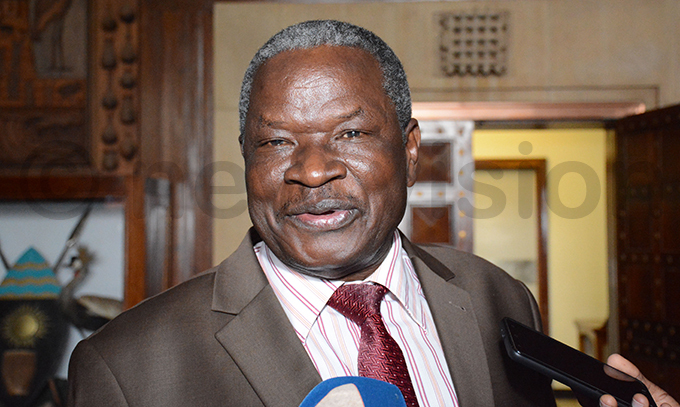Kadaga opposed to cross-border voting
The Speaker wants loopholes that have made it possible for non-Ugandans living in areas near our borders to vote in elections closed
From West Nile, Kisoro, Busia and Sebei sub-region, Uganda has a number of communities that straddle boundaries with its neighbours.
Many people belonging to these communities take advantage to enjoy privileges available to citizens in either country, like voting.
On Tuesday, the Speaker of Parliament, Rebecca Kadaga asked the government to explore possibilities of closing loopholes that have made it possible for non-Ugandans living in areas near our borders to vote in Uganda's elections.
Kadaga's call came in the wake of a report by the minister of state for internal affairs, Obiga Kania, who alleged that some of the individuals fanning the embers of land wrangles in Hoima were Congolese nationals holding Ugandan passports.
"Recently, I was in Nakapiripit and I was shocked to learn that Kenyans vote in Uganda and the vice versa. How is this possible?" Kadaga said.
The issue of communities straddling boundaries drawn by colonialists is as touchy as they come with a number of Ugandans living in border regions having relatives in neighbouring countries.
 Internal affairs minister Kania Obiga. Photo by Miriam Namutebi
Internal affairs minister Kania Obiga. Photo by Miriam Namutebi
One such prominent Ugandan is former minister and one-time Samia Bugwe MP, Aggrey Awori whose elder brother, Moody Awori once served as Kenya's vice president during Mwai Kibaki's tenure.
Although a section of lawmakers, tongue-in-cheek said cross border voting will help foster the spirit of the East African Community, Silas Aogon, made it clear that; "there is no protocol that has been signed to legalise" the practice.
However, Kania told the House that until Uganda adopts the practice of registering its citizens at birth, it's going to be hard to weed out instances of non-citizens participating in its electoral process.
"At the moment, we rely on the truthfulness of local council officials when we go out to register people for national IDs. Unfortunately, some of them might be descendants of foreign migrants who have settled here," Kania said.
According to Uganda's Constitution, there are 65 tribes in Uganda described as indigenous. These, as per the Constitution, are those tribes that were settled in Uganda as of 1st February 1928.
However, the Constitution allows the acquisition of Ugandan citizenship either by registration or naturalisation before one can gain the right to vote.